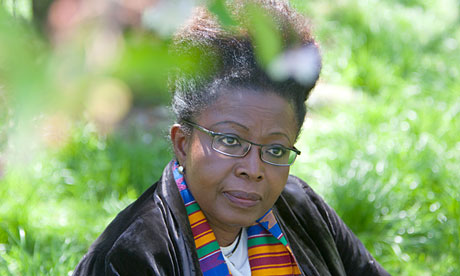
More than 70 women and girls in Britain seek treatment every month after undergoing female genital mutilation (FGM), with the actual number subjected to the illegal practice likely to be far higher, figures reveal.
The NSPCC is launching a helpline on Monday to protect children from FGM after research found that more than 1,700 victims were referred to specialist clinics in the past two years, likely to be a fraction of the true figure for women affected. The youngest victim was seven.
In one of the most significant developments in efforts to combat FGM in recent years, the helpline will provide a means to tackle this form of "complex and secretive abuse", said Lisa Harker, the NSPCC's head of strategy.
"The UK's child victims of female genital mutilation are hidden behind a wall of silence. Like other forms of abuse, if female genital mutilation is not exposed it will continue to thrive and more children will suffer," she said.
Harker said children who were victims of FGM or at risk often did not know it was abusive and harmful, because it was being done at the behest of their family. "They are told they are unclean and immoral if they are not 'cut' and that it is in their best interest," she said. "There is also a huge pressure within these communities to keep quiet about female genital mutilation, with some people even being threatened with violence if they speak out. This is why we believe a dedicated helpline with specially trained child protection advisers is needed to help overcome the difficulties in protecting children from such a complex and secretive form of abuse."
FGM – a dangerous procedure that involves the partial or total removal of the external female genital organs – is common in some African, Asian and Middle Eastern communities in the UK.
Carried out in secret and often without anaesthetic, FGM has been illegal since 1985 but there has never been a prosecution over it in the UK.
According to Forward, an NGO for girls and women from the African diaspora, an estimated 66,000 women are dealing with the after-effects of FGM and more than 20,000 young girls are thought to be at risk. Victims are usually aged between four and 10, but some are babies and the procedure can be life-threatening, according to the NSPCC.
Efua Dorkenoo, advocacy director of the FGM Programme at Equality Now – which alongside anti-FGM organisation Daughters of Eve is providing training for the helpline – has worked in the field for more than two decades and called the new move a "sea change in attitudes towards FGM". She said: "For the first time in this country we are giving a voice to the young people from these communities who have not been able to speak out. The government, the police and health professionals have been frightened and this is bringing it out into the open at last."
The NSPCC gathered information from the past two years from six clinics in England which specialise in helping victims of FGM; however, there are currently 14 clinics that provide treatment for FGM but data is not collected for children who go to hospital or doctors, nor the children who never have contact with the authorities. "This is not a small problem, it is hidden," said Dorkenoo.
She added that in some African, Asian and Middle Eastern communities – including but not exclusive to Egypt, Sudan, Ethiopia, Eritrea, Somalia, Kenya, Liberia and Sierra Leone – 90% of female children were subjected to FGM and that the figure was likely to be similar for girls living within those communities in the UK.
"We need real proactive work from the government on this," she said. "If this were happening in mainstream society the government would be moving heaven and earth to stop it. The helpline is a great first step but now we need a national plan – we need data, we need prevention, we need a conviction and we need professionals to stop looking at this as a cultural issue and start treating it as a child protection issue."
Contact the 24-hour helpline at 0800 028 3550 or at fgmhelp@nspcc.org.uk

